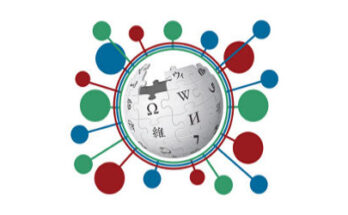
Knowledge Graphs
Tracking the historical events that lead to the interweaving of data and knowledge.
“Those who cannot remember the past are condemned to repeat it.”
—George Santayana
Knowledge Representation and reasoning (KRR, KR&R, KR²) is the field of artificial intelligence (AI) dedicated to representing information about the world in a form that a computer system can use to solve complex tasks such as diagnosing a medical condition or having a dialog in a natural language. Knowledge representation incorporates findings from psychology about how humans solve problems and represent knowledge in order to design formalisms that will make complex systems easier to design and build. Knowledge representation and reasoning also incorporates findings from logic to automate various kinds of reasoning, such as the application of rules or the relations of sets and subsets.
Examples of knowledge representation formalisms include semantic nets, systems architecture, frames, rules, and ontologies. Examples of automated reasoning engines include inference engines, theorem provers, and classifiers.
—Wikipedia, “Knowledge representation and reasoning”
Knowledge Representation where the knowledge acquired is stored and organize in a form that the computer understands.
—ScienceDirect, “Knowledge Representation”
What is a Knowledge Representation? We argue that the notion can best be understood in terms of five distinct roles it plays, each crucial to the task at hand:
—MIT Computer Science and Artificial Intelligence Laboratory, “What is a Knowledge Representation?“

Tracking the historical events that lead to the interweaving of data and knowledge.
“Those who cannot remember the past are condemned to repeat it.”
—George Santayana

In order to close these knowledge gaps we are building a multilingual Wikipedia where content is created only once but made available in all languages.
Building a Multilingual Wikipedia Read More
Communications of the ACM, January 2019
By Yolanda Gil, Suzanne A. Pierce, et al.
“Many aspects of geosciences pose novel problems for intelligent systems research… A recently launched Research Coordination Network on Intelligent Systems for Geosciences followed a workshop at the National Science Foundation on this topic. This expanding network builds on the momentum of the NSF EarthCube initiative for geosciences, and is driven by practical problems in Earth, ocean, atmospheric, polar, and geospace sciences. Based on discussions and activities within this network, this article presents a research agenda for intelligent systems inspired by geosciences challenges.”
Intelligent Systems for Geosciences: An Essential Research Agenda Read More